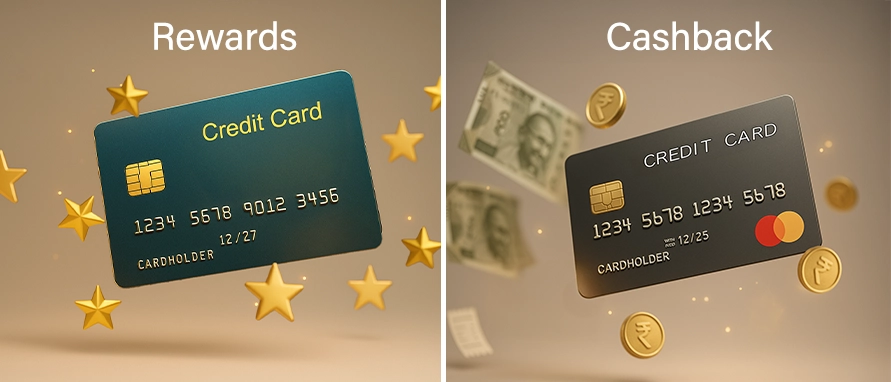The value you get from reward points or cashback from credit card spending depends on your habits and how you use your card.
Reward Points:
If you spend more on travel, dining, or premium categories, reward points might offer greater value. For example, using an Axis Bank SELECT Credit Card for shopping and redeeming points for flight tickets may give you a higher effective return than standard cashback. However, you need to track points, understand redemption values, and ensure you redeem before expiry.
Scenario:
A frequent traveller uses a rewards card, accumulates points, and redeems them for a free flight worth ₹5,000. If the points were earned on ₹1,00,000 spent, the effective reward rate is 5%, which can be higher than most cashback cards.
Cashback:
If you prefer simplicity and want direct savings on every transaction, cashback is more suitable. For instance, spending ₹50,000 a year on a cashback card with a 5% rate gives you ₹2,500 back, credited directly to your statement—no tracking or redemption needed.
















